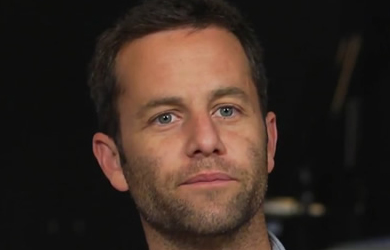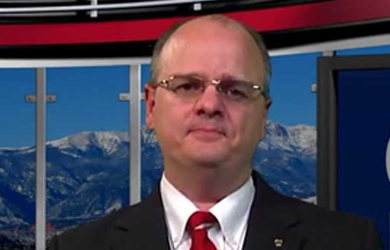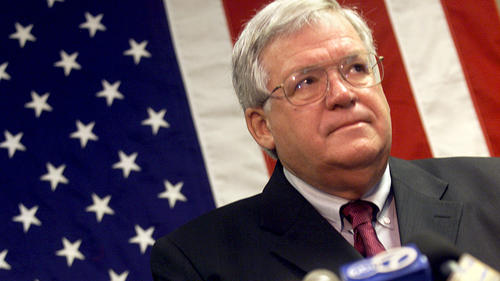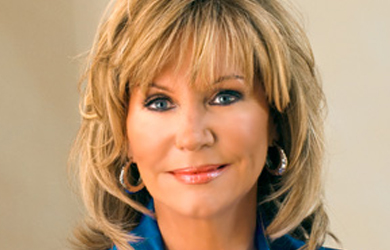It appears that for the Religious Right, simply criticizing their anti-gay activism strips them of their freedoms. Echoing Kirk Cameron’s claim that his freedom of speech and religion are jeopardized by negative responses to his claim that homosexuality is “destructive,” David Krayden of the Canadian Centre for Policy Studies writes on LifeSiteNews that GLAAD, the Gay and Lesbian Alliance Against Defamation, is a “totalitarian” organization because it denounced Cameron. Of course, Krayden never shows how organizations that have decried Cameron are taking away any of Cameron or anyone else’s freedoms. He also claims that “the current trend towards acceptance and promotion of homosexual behaviour is in itself a throwback to the attitudes and opinions of ancient pagan civilizations,” and argued that supporters of the “gay agenda” are “completely at odds with basic democratic freedoms.”
The remarks engendered a swift counterattack by the Gay & Lesbian Alliance Against Defamation (GLAAD), which apparently is unaware that Cameron has continued to work as an actor and producer since he was a featured player on the sitcom Growing Pains. Said GLAAD’s senior director of programs Herndon Graddick, “In this interview, Kirk Cameron sounds even more dated than his 1980s TV character. Cameron is out of step with a growing majority of Americans, particularly people of faith who believe that their gay and lesbian brothers and sisters should be loved and accepted based on their character and not condemned because of their sexual orientation.”
OK, so you would not expect an organization that is actively pushing the gay agenda to either ignore Cameron’s comments or even to agree to disagree. Cameron said nothing about not loving gays and lesbians, but for GLAAD, anyone not of the fervent conviction that homosexuality is as natural as the rain falling is trapped in a medieval mindset and hopelessly out of step with progressive thought.
But does being “out of date” have anything to do with being right or wrong on an issue? For that matter, one could say that the current trend towards acceptance and promotion of homosexual behaviour is in itself a throwback to the attitudes and opinions of ancient pagan civilizations where same-sex couplings were not only an acceptable part of sexual expression but embedded in religious rites.
The demands of GLAAD and other similarly focussed groups that Christians accept homosexual activity may well be a rooted in the approval of that distant coupling of sex and religion, in a desire to have organized religion today sanction that behaviour just as it was in the distant past by pagan cultures. GLAAD desires a return to a religious conformity that might well be described as strangely nostalgic.
The “people of faith” that Graddick describes as accepting any sexual orientation must surely belong, as far as Biblically-based Christianity is concerned, to any apostate church that flatly rejects the clear moral dictates that may be found in preponderance in both the Old and New Testaments. Furthermore, since “sexual orientation” is a term that can describe anything, and therefore ultimately means nothing, do we really believe that any sexual urge may be satiated, that any sexual calling must be applauded, that any sexual – dare we say – perversion is permissible?
Clearly we have reached a new level in society’s attitudes towards homosexuality. The yardstick of political correctness has subtly but undeniably been stretched from tolerance to acceptance to promotion – and now it is insistence, insistence that religious opinion and “people of faith” accept the homosexual lifestyle without question, without remorse, without further comments—especially to networks like CNN. At least no one – yet – is suggesting that Cameron should not be allowed to work in films because his opinions are too odious and corrosive for public viewing.
This insistence is profoundly totalitarian in scope and intent while being completely at odds with basic democratic freedoms – in particular a certain freedom which we used to have called freedom of religion. No one can demand that people think in a certain way or that the only acceptable “people of faith” are the ones who won’t disagree or “condemn” your lifestyle choices.








